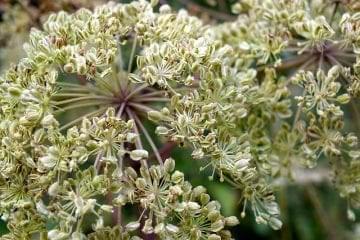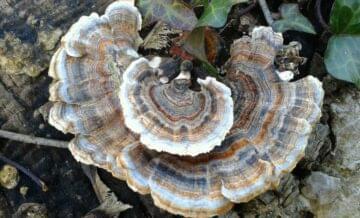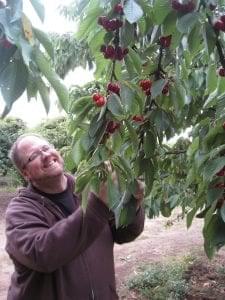OSU Extension Service Workshop 2009
Sue Sierralupé – Instructor
Use of Herbs Culinary vs Medicinal
-
Culinary- focus on preserving flavor in essential oils
-
Culinary presentation – color is in flavonoids
-
Medicinal – focus on preserving constituents for healing properties
-
Entire plant may have medicinal value
Preservation Varieties
-
Herbal Wines and Liquors
-
Herbal Oils – cold infused and heat infused
-
Dried herbs
-
Frozen herbs
-
Syrups and glycerites
-
Jams and jellies
Drying Herbs
-
Most herbs can be air dried away from light and dust by hanging it upside down, LABELED, (paper bag over seed heads) and checked to avoid over-drying
-
Check color and texture
-
Lay herbs on newspapers or baskets to preserve small herbs like thyme – LABEL
-
Dry herbs with high water content like parsley, basil, nuts or berries in food dryer, toaster or oven
-
Dry at 150 degrees with oven door ajar and check regularly
-
Dried fruits may be roasted or slow-cooked with meats or veggies – dark fruit with red meat or darkly colored veggies and pale fruit with white meat or veggies
Frozen herbs
Vinegars
-
White vinegar can be used to preserve hot and peppery herbs
-
Apple cider vinegar preserves herbs with more subtle flavors
-
White wine vinegar preserves flavonoid rich herbs like rose petals or calendula best
-
Strain herbs after a few weeks and use vinegar up to one year after creation
Oils
-
Culinary oils like garlic oil is best made with olive oil
-
Medicinal oils may be made with cold pressed oils like olive, almond or apricot seed oil
-
Oils may be used to make ointments and salves
Alcohol
-
Culinary herbs preserved in alcohol – herbal wines, beers, liquors, cordials
-
Cordial are easy to make – canning jar 2/3 full of fruit + ½ cup of sugar + brandy or scotch = cordial. Sit for 1 month. Strain out fruit. Let rest 1 week. Strain again. Serve.
-
Tinctures are medicinal alcohol. Most herbs need scotch, brandy or rum. Waxy herbs like myrrh or propolis needs higher amounts of alcohol – everclear
-
To get rid of alcohol ( for alcoholics), stir tincture into hot water, let cool and serve
-
Do not combine herbs until after tinctures are done. Different herbs and different herb parts need different processing times.
Syrups
-
Cook herbs on stove in water, strain herbs and keep resulting tea, add honey or sugar until sweetener is dissolved and refrigerate labeled for up to one year
-
Glycerites are made the same way that syrups are made but the glycerine in added with the water.
-
Glycerites can be cooked in a slow cooker
Canned Jams, Jellies and Sauces
-
Applesauce can be medicinal for stomach flu
-
Mint jelly is good for eating with lamb or to settle a stomach
-
Try Elderberry or Oregon Grape jam or jelly as medicine







